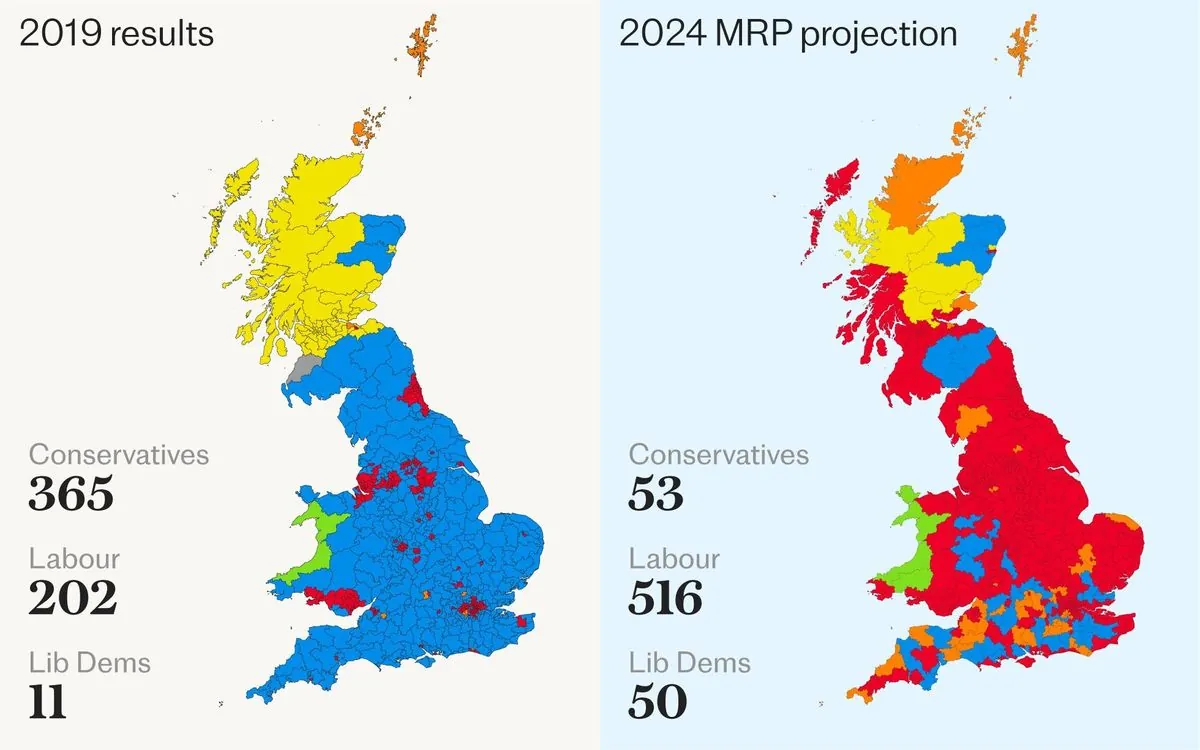Labour's Landslide Victory Marred by Historic Polling Inaccuracy
Recent UK election sees largest overestimation of Labour support in 50 years, despite party's win. Analysis reveals global trend of left-wing party polling errors, raising questions about modern polling methods.

The recent UK general election on July 4, 2024, has highlighted a significant discrepancy between polling predictions and actual voting outcomes. Analysis reveals that pollsters overestimated Labour Party support by 4.2 percentage points, while underestimating Conservative Party backing by 2.9 percentage points. This marks the largest polling inaccuracy in 50 years, surpassing even the notable misses of 1970 and 1992.
Despite securing a landslide victory with 412 seats, Sir Keir Starmer's Labour Party achieved only 34% of the vote share—the lowest for any governing party since World War I. The Conservatives saw their support plummet to 24%, yet the gap between the two parties was considerably smaller than the predicted 20%.
This phenomenon is not unique to the UK. A global trend of overestimating left-wing party support has been observed in recent years. In the 2020 US presidential race, Democratic support was overestimated by 0.7 percentage points, while Donald Trump's appeal was underestimated by 2.3%. Similarly, in November 2023, pollsters underestimated support for Geert Wilders' far-right PVV party in the Netherlands by 9%.

Martin Boon, director of Deltapoll, commented on this trend:
"The overstatement of the Labour Party is not a British disease. The disease is actually worldwide and affects parties of the Left."
Modern polling faces new challenges, particularly with the rise of online surveys. Issues such as bot interference and "grifters"—individuals who participate in surveys solely for remuneration—have emerged as potential factors affecting polling accuracy.
The Labour Party's victory was not without its complications. The party's stance on Gaza led to a loss of support in some areas, with pro-Palestine independent candidates defeating Labour incumbents in four constituencies. Notable losses included Jonathan Ashworth in Leicester South, while other MPs like Wes Streeting saw their majorities diminish due to pro-Gaza challengers.
As the dust settles on this historic election, questions arise about the reliability of polling methods and the factors influencing voter behavior in an increasingly volatile political landscape.


































